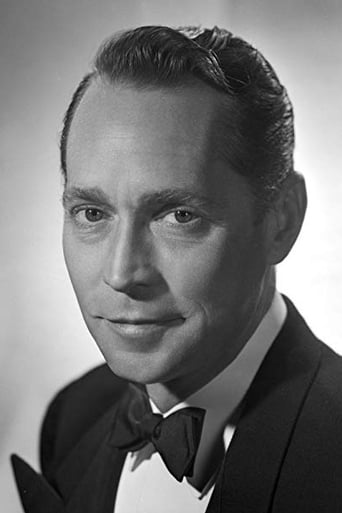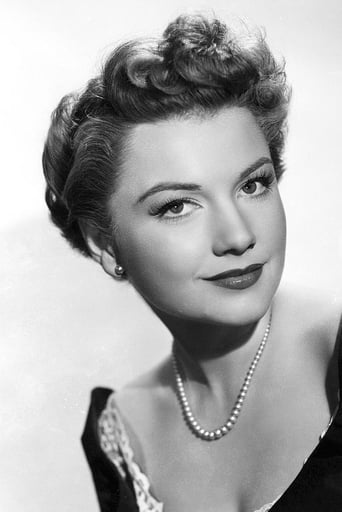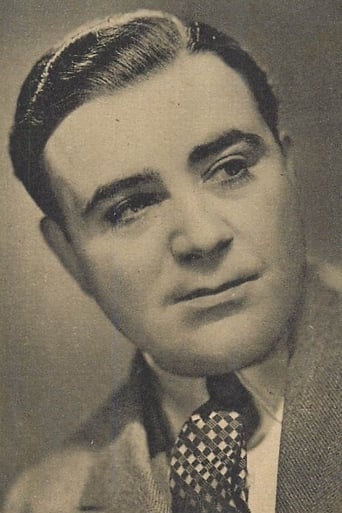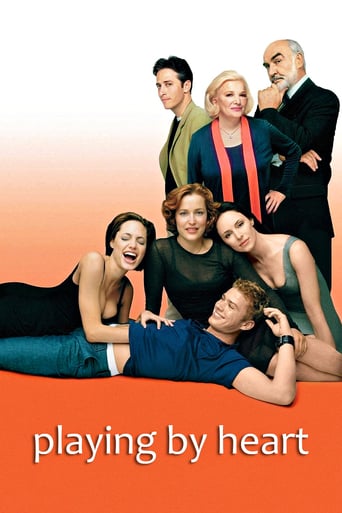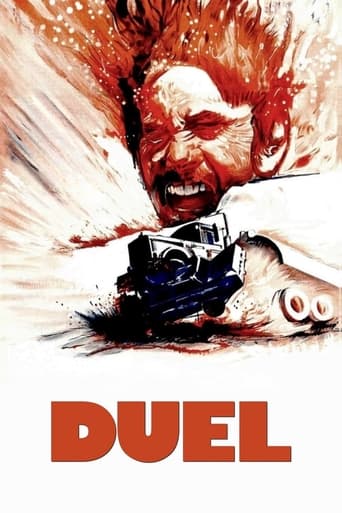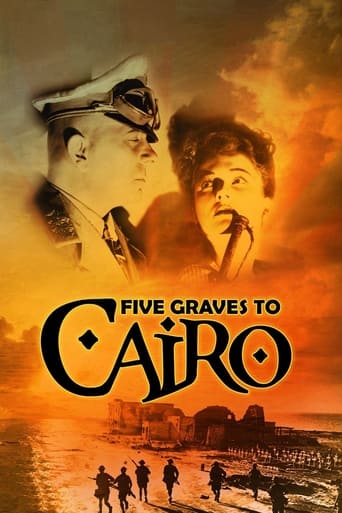
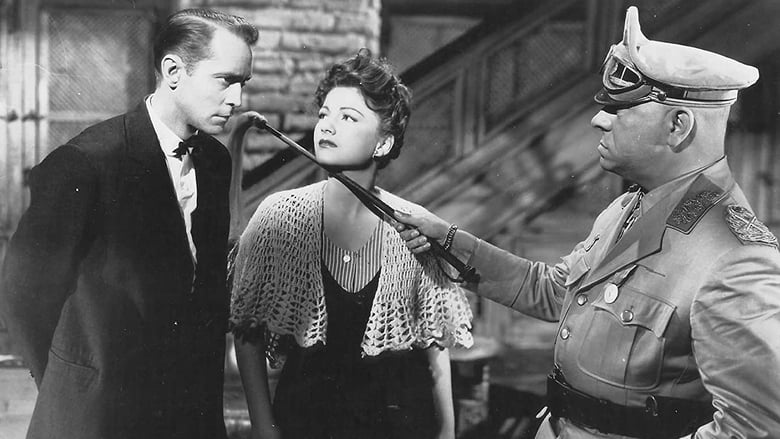
Five Graves to Cairo (1943)
The British Army, retreating ahead of victorious Rommel, leaves a lone survivor on the Egyptian border who finds refuge at a remote desert hotel. He assumes the identity of a recently deceased waiter and is helped by the hotel's owner, despite protest from the French chambermaid, who fears the imminent arrival of Rommel and the Germans.
Watch Trailer
Cast
Similar titles


Reviews
So much average
Good movie, but best of all time? Hardly . . .
Excellent adaptation.
Great movie! If you want to be entertained and have a few good laughs, see this movie. The music is also very good,
Producer: Charles Brackett. Copyright 3 May 1943 by Paramount Pictures, Inc. New York opening at the Paramount: 26 May 1943. U.S. release: 4 May 1943. Australian release: 30 September 1943. Sydney opening at the Prince Edward (Paramount's number one Australian showcase): 24 September 1943 (ran 4 weeks). 8,728 feet. 97 minutes. SYNOPSIS: British army corporal poses as a waiter at Rommel's headquarters.NOTES: A re-make of Hotel Imperial (1926) directed by Mauritz Stiller from a script by Jules Furthman, starring James Hall, Pola Negri and George Siegmann in the Tone, Baxter and Von Stroheim roles, respectively.COMMENT: From the very moment that Erich Von Stroheim strides on to the screen, we know we're in for a real treat in Five Graves to Cairo. Fortunately, this occurs quite early in the action. Just enough preparatory work is laid down by the screenwriters to whet our appetite. Von Stroheim enters at exactly the right moment and he stays with us until the action really comes to an end. True, there is an ironic little epilogue which neatly (if sadly) ties up a major plot strand, but otherwise this is Von Stroheim's movie, and he makes the most of it. The other players, particularly Peter Van Eyck, Franchot Tone and Anne Baxter lend excellent support. Von Stroheim's interpretation is, of course, miles removed from James Mason's in The Desert Fox (1951). Mason's Rommel comes over as a softie compared to the Von's far more powerful characterization. Fortunio Bonanova's self-admiring general griping about the way the Germans treat their Italian allies is a typical Billy Wilder creation, adding just the right touch of comic inanity to an fascinating and tautly suspenseful plot. Unfortunately, to my mind, Akim Tamiroff tends to overplay the cowardly proprietor of this Hotel Imperial, thus dissipating some of the atmosphere so carefully built up by Wilder's dramatically delineated compositions and Seitz's superbly lit cinematography. Nonetheless, extremely high production values, including a Rozsa score, effective locations, eye-catching sets, the intriguing title and clever plot, plus Eric Von Stroheim's gripping scene-hugging (though it must be admitted Tone stands up to him well enough) and Anne Baxter's surprisingly effective and most credible performance, more than compensate for any of the blubbering Tamiroff shortcomings.
It's remarkable how interesting a war time espionage film can be, while at the same time requiring major suspension of disbelief throughout the story for various reasons. The major one here for me related to the character of actor Franchot Tone impersonating a German undercover spy. Throughout the entire film, not one German officer or soldier thought it appropriate to address him in the mother tongue. There were plenty of opportunities, as German was used sporadically in the story at various times. At least in the interest of being cautious with captured British officers around, one would think Field Marshal Rommel (Erich von Stroheim) or Lieutenant Schwengler (Peter van Eyck) might have addressed Bramble/Davos in German, especially in the early going when all the characters at the Hotel Empress would have come under suspicion.Which brings me to my next point. You probably wouldn't need to know a thing about General Rommel to question why he would speak freely of German military strategy in the presence of English officers. I don't think so. As for the casting of Erich von Stroheim as Rommel, there was no physical resemblance to speak of. My idea for the role would have been someone like Conrad Veidt who portrayed Major Strasser in the Bogart film "Casablanca". Although with the timing of this picture, shooting schedules might have overlapped between the two.One more thing before I'm through. I thought the gimmick with the map and the letters spelling out 'EGYPT' was a fairly clever plot element, but there again, a bit of thought brings a big question mark. Given that any of the letters on the map might have represented an area covering hundreds of square miles, the resolution for the Allies wouldn't have been as precise as the story suggests. Even given a general area in which to unearth the hidden military supplies, a fair amount of time would have been needed to discover a weapons cache.Still, even with all the perceived glitches in the story, I fond the story intriguing enough to hold my attention. All the principals did a good job, and I particularly liked the character of Farid (Akim Tamiroff), who was downright hilarious at times under stressful circumstances. I was also moved by Bramble's response to the Alsatian maid Mouche (Anne Baxter), who had an overbearing concern for her younger brother who was a prisoner of the Nazis. It appeared Bramble made his point when he stated - "It's not one brother that matters. It's a million brothers".
It's WW2 and British corporal Franchot Tone (Bramble) is unconscious inside a runaway tank somewhere in the Sahara. He stumbles across a bombed hotel where he is met by the owner Akim Tamiroff (Farid) and the chambermaid Anne Baxter (Mouche). Minutes later, German troops arrive under the leadership of Peter van Eyck (Lt. Schwegler) who takes over the hotel to accommodate his troops and a special guest yet to arrive – none other than the main man Erich von Stroheim (Field Marshal Rommel). Tone is in trouble at this point – what to do? Anne Baxter doesn't particularly like him and threatens to betray him to the new guests. He has to do something bold.I enjoyed this film. It has a different setting to most war films and it doesn't involve any battles apart from the flag-waving nonsense at the end, which, unfortunately, knocks a point off this film as it goes on for too long. The actors do well, especially von Stroheim and Baxter, although her name in this film isn't very complimentary! Both these actors give their characters a depth that brings them to life. The comedy characters of Tamiroff and Italian General Fortunio Bonanova are OK for what they need to do although Tamiroff can be slightly annoying and Fortunio Bonanova is as unrealistic as his name. It doesn't matter too much as we get a film that keeps the viewer watching with tense scenes and an interesting storyline that ends on an emotional note.
It seems that Frank Capra was too busy when this movie was made back in 1943 otherwise this could have been a nice propaganda movie. Of course, goal of such films was to recruit American soldiers and give them motives to fight on other continents which had not been the American practice until that time. Capra was a grandmaster making gems as "Why we fight" serial of propaganda movies (from where Goebbels could learn a lesson) and everything else made during that time was mostly a second class support but apparently very welcomed. This movie is one of these, among the worst I have seen. First of all, General Rommel is presented as a clown in this movie. Man who played with whole ally armies with outnumbered German army, outdated tanks (among them Italian tanks as well) and no logistics. One of the greatest generals in history of world wars is presented as a thug and moron. Person who made ally army commanders look ridiculous was outwitted by a British corporal. Well, do you need to hear anything else? OK. Highly decorated German officer and war hero is a haughty Lovelace and sneaky hoodlum who takes advantage of a woman in greatest pain. List of stupidity never ends in this semi-retarded American propaganda movie whose roots of banality are visible in today movies of that kind made in Hollywood.
